Independent Producers Blurb on their Music and Technology
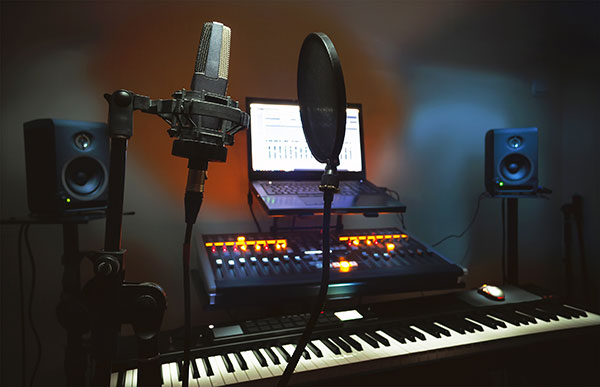
The era of independent music (read non-Bollywood) is finally upon us. In a country where Bollywood reigns supreme, Indie Music has gradually made a mark for itself and this can be attributed in large to advancements in technology.
PT caught up with renowned independent music producers to find out more about their recording approaches, technology they use and if there is still a need for conventional studios and recording rooms.
Keshav Dhar – Illusion Audio
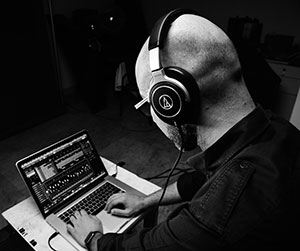
According to Keshav, what makes an amazing producer is a little bit of technical know-how and an innate musicianship. “In the true sense of the word, a producer is always first creative and secondly technical. Technical know-how needs to only be enough to identify what is required to translate what’s up here in our heads to down there on our computer,” he says.
Talking about the technology he prefers, Keshav, who comes from the Billie Eilish school of thought, is all about improvisation, DIY and being able to work when inspiration strikes. A minimalist, all he needs is his Macbook, Apollo Duo, Event Opal Speakers, ATH-M50 headphones and a Blofeld Keyboard and he is all set.
Technology used by Keshav
- Macbook
- Apollo Duo
- Event Opal Speakers
- ATH-M50 headphones
- Blofeld Keyboard
So, does he believe in having a conventional studio with the large desk and the acoustic musicians recording room? According to Keshav, these are ultimately luxury items. “It really depends on how much of a sound purist you are. Obviously having those things at your disposal will get you a ‘better’ sound in the technical sense, and if money is no object - go for it, but with DIY recording tech having evolved to the point that it has, you’re very much in the realm of diminishing returns with the whole big studio thing. Modern day producers are often also engineers, editors and mixers. So if I had a bunch of money, personally I would invest it into a space that facilitates and inspires creation and capturing that in the best possible way, and studio ‘toys’ as in fancy outboard equipment would be much more secondary,” he explains.
Jehangir Jehangir – Island City Studios
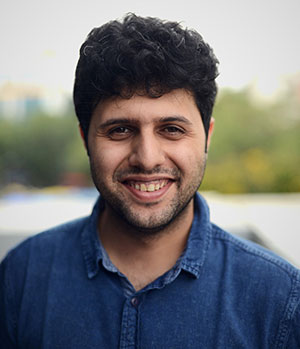
Jehangir started off as a drummer before getting into production. According to Jehangir, what makes an amazing producer is someone with the innate ability to know what will sound good for the song along with the ability to see that vision into the track itself.
He calls himself a geek, hence uses a lot of technology. “Lately I’ve been into using my iPad Pro and Apple Pencil as an external touch display to do some fun stuff.” Nevertheless, he feels technology has the potential to be really useful as well as very distracting. He continues, “As music makers we are always looking for cool ways of manipulating sound because apart from 12 notes in the scale there are a whole lot off other exciting sounds we can create when we explore sonic texture.”
Technology used by Jehangir
Commenting on the relevance of conventional studios and acoustic musicians recording room, Jehangir says, “As the owner of one such studio, Island City Studios, you might have a biased response in favor of the above. Though I will admit as a producer, I can live without those things for a certain part of the process, but a good room with acoustic musicians performing for the song gives any production that life. Even if it is an old wonky piano sampled for that song, it’s done with a purpose to be used in that song”. He concludes, “Lastly as musicians and creators we need to be inspired and we need to feed of the energy of other musicians/producers etc. and honestly the best place for this is a purpose built studio for music where you have instruments and different sounds to inspire you and the right kind of equipment to capture that collaboration”.
Ayan De – Paralights Music
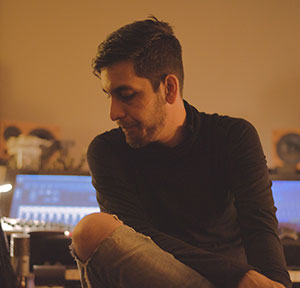
For the young music producer and sound engineer, what makes an amazing producer is the ability to remain objective towards a song and make decisions not based on personal tastes and opinions, but rather based on what’s needed for the song rather than personal interests. The approach of executing those decisions in an artistic way that is based on personal taste (both the artist’s and producer’s) and finding a balance is what makes a producer amazing according to him.
Ayan mostly tries to focus on being as transparent as possible when he is working on someone’s music as he needs to let the artist’s colour come through and enhance everything that is unique about them. According to Ayan, “It’s definitely more the technical side of things as I am more a sound engineer than a conventional producer and with technology making strides the way it is, there is always something new to do and try and some new way to make something interesting”.
Ayan considers himself more of a music technologist, he says, “Where creating my own tools for the sound that I work towards, or creating something new by blending organic sounds (like a guitar or a drum kit) and processing it using unconventional processes, is something I have been driving towards over the years. Lyrics are the heart of a song and I usually tend to work with the lyrics in focus more than a groove or a nice sound, so pretty much every choice that I make, like a chord or a drum groove, is to drive home the meaning and story of that piece of music, so the experience is more cohesive”. Keeping an artist’s brand and identity in the centre of the song and the music and the art and nailing that balance as closely as possible is what he focuses on.
Elaborating on the the technology he uses, Ayan informs that he has always been an ‘In the Box’ kind of person. He started off by using a very minimal set up and everything was based on Midi. He tries to do everything as organically as possible, like having someone actually play drums on a triggered kit rather than using a mouse to draw out a groove. “Guitars are usually mic’ed or re-mic’ed in the box using a Slate microphone system or the Oceanway Plugin from Universal Audio.”
The heart of his studio is the Universal Audio System and everything else in designed and routed accordingly to its functionality.
Ayan is not a laptop person. “The reason I say this is because my setup is a little excessive for an independent home studio and isn’t really designed for portability. I don’t use a lot of hardware synths as that just isn’t something that I have gotten into. I do however run a couple of computers for my production needs and then the main host system is designed more for mixing and mastering and recently I got another system just running Sadie and Sequoia 7.”
Technology Ayan Uses
- Slate microphone system
- Oceanway Plugin from Universal Audio
- Sadie
- Sequoia 7
Ayan believes that conventional studios with a large desk and an acoustic music recording room are necessary. “Even though it is fairly simple to do a lot in a small room with a laptop and a pair of headphones, what has largely been taking a hit because of it (over the last decade) has been musicianship and just the ideology of what something should sound like. Even though the completely programmed synthetic sound is totally and completely a sound on its own and I do respect that and do use it myself, I feel like it has to be a choice more than something that is just done out of a lack of time and effort,” he says.
According to Ayan more than the giant desk and the space for a sound, it is more about the workflow and the process that goes into it that is important. “My entire career has pretty much been about getting that big studio sound and aesthetic from a Project Studio set up.
A ton of brands like Universal Audio and Softube, Plugin Alliance, Slate Digital, etc. have bridged the gap between running large expensive machines and being able to cut a very good record in a smaller space. It’s just about the knowhow and the ability to stick to a brief and idea from day one. Limitations have always been the path for innovation, it’s our job to work with limitations we have instead of against it.”
Vivek Thomas – Vivek Thomas Productions
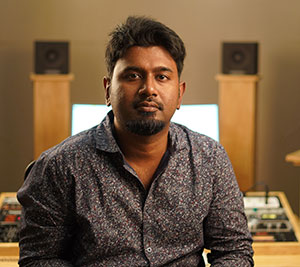
Vivek has been working as a music producer and mixing mastering engineer for the last ten years. From these years of experience, he has realised that patience, focus and attention to detail is what makes a really good producer. Also most important is respect, “when we talk about respect we are talking not just about music,” he says. Elaborating on technical knowhow, he continues, “Considering that technology is literally changing every day you have to be constantly updated”.
Vivek is still very much an analog guy and not because it sounds better, but because it is more fun. Where technology is concerned, Vivek uses Prism and Cranesong convertors at his studio with a few outboard gears from Thermionic culture, Rupert Neve, Kush Audio, Bettermaker Kemper and Dangerous Music.
Technology used by Vivek
- Prism and Cranesong convertors
- Outboard gears from Thermionic culture, Rupert Neve, Kush Audio, Bettermaker Kemper and Dangerous Music
For him, being an independent producer is to make good music and to make good music all he needs is his laptop and a good interface and not necessarily a conventional studio or recording room. “You definitely need to know what you are doing. If the artist or band has the budget, he still prefers recording on a console and mix/master ITB with few outboard gear,” he says.
Rohan Ramanna – Salvage Audio Collective
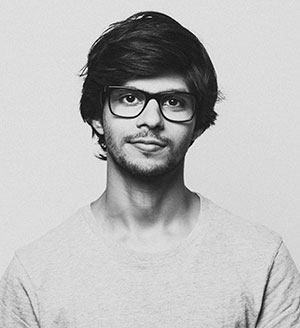
Rohan has been professionally composing, producing and engineering music in India for about 12 years now (Independent, Commercial and for Film) and has had the great pleasure to study under some incredibly talented and seasoned producers and engineers. He is part of Five-producer collective called Salvage Audio. He also works as a mix engineer at Jehangir Jehangir’s Island City Studios.
Commenting on what makes an amazing producer Rohan says, “I’ve come to realise that there are a lot of people out there who don’t even know what a music producer does, and I feel that this job has really transformed over the last few decades. I personally think a music producer is a key facilitator who is tasked with bringing a musical work to life, right from an artist’s original idea until the end completed piece.”
According to Rohan, the best producers understand what the purpose of the music is before they set off on any piece. If a producer is tasked with working on other peoples material (A film director, a band or a singer/songwriter), they need to know whether the music that’s being made is for commercial purposes or if it’s purely a personal expression. The best producers find what is most unique about the artist, and really try and bring that out, rather than follow references and trends. “In most cases, producing music for an artist is a complex set of steps and sometimes producers feel that they have to control every step of the process. In truth - I found this is not always the best option - sometimes it’s about knowing when NOT to step in, sometimes it’s about getting the right people in the room at the right time and facilitating the flow of ideas and then curating the best ones after it’s recorded,” he says. He continues, “A good producer is one who understands that the content of the piece is the most important thing. Not how cool the bass sounds, how good the mix is or how loud the master is. The best producers constantly study each step of the music making process. Composition, arrangement & orchestration, recording, editing, mixing and mastering. And lastly, the best producers are all very patient! It can be a lengthy and complex process, keeping your cool and keeping the performers happy and comfortable is incredibly important.”
Technology used by Rohan
Talking about the tech he uses, Rohan says, “Today’s environment requires musicians to be fairly diverse in their skill set in order to survive, so the work we pick up is extremely varied in terms of requirement of equipment and space”. Rohan composes and edits at home and keeps all vocal, drum, strings and horn recordings for the studio and tends to record guitars and bass at home via DI and reamp them at the mixing stage.
Rohan’s home is equipped with:
- Mac book Pro
- 2 electric guitars
- 2 basses
- A midi Keyboard
- A 10 year old pair of Adam audio A7s
- A motu Ultralite mk4
- The UAD satellite octo-2, and
- A pair of Audeze LCD-Xs.
As part of Salvage Audio, he has access to instruments like ukeles, mandolin, percussion, synths etc.
So does Rohan think it necessary for an independent music producer to have a conventional studio? “Here is a simple answer to an otherwise heavily debated topic. It purely depends on the sound you are going for. For some, making lofi music is what they enjoy, so there is no need for a fancy studio with a ton of gear. They can get away with using a semi treated bedroom studio. There is a lot of music you can create at home, but for certain instruments, you need space, and you need decent equipment to capture it. A lot of producers today start at home, and some of them remain happy in that space, it’s about creating the content they want to create and they keep their audiences happy too.” Having said that, according to him, most of the working musicians and producers he knows, generally always come into the studio to record final vocals, reamp guitars or drums if required. “Mixing in a well-treated room can save people months of time in the mix stage. Even the producers who create purely instrumental electronic music will come into the studio to mix their material. There might not be a need for a large format console in every situation, but honestly it is incredibly difficult achieving that kind of low-end extension and accuracy that is required to master in a monitoring room, even harder in an apartment in Mumbai.”
Talking about his own set-up he says, “Having a semi-treated home studio definitely keeps budgets in check, and allows me to be creative without racking up studio fees, but I never commit any processing at home - it’s more like a safe space to ideate freely. Every single mix decision is rechecked at Island city, and all scratch recordings at home are generally redone there too.”
He further adds, “There are a lot of producers who just use pre-processed samples that are found online and can get away with doing pretty decent mixes at home in semi treated spaces, but to really create new sounds and build your own unique signature, recording your own raw tracks is the way to go.”
Rohan believes it is completely necessary and relevant for most types of music to have the conventional studio with the large desk and the acoustic musicians recording room.